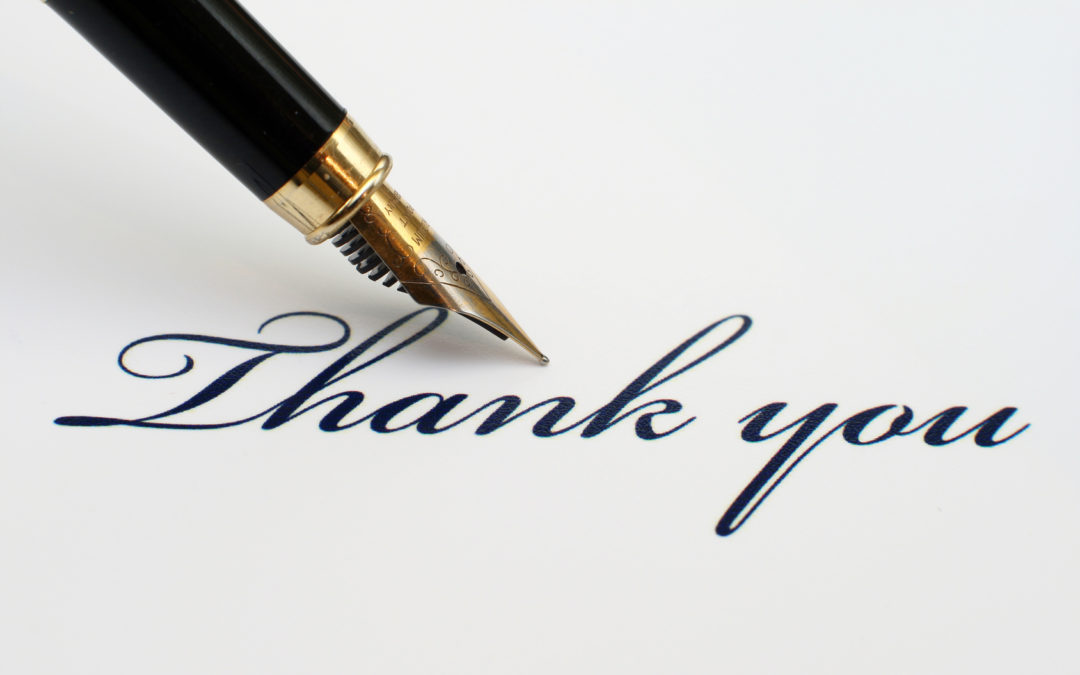
10 Tips To Writing A Great Thank You Letter After An Interview
If you think submitting a resume and nailing your interview is enough to secure a job offer, then you’re missing a vital component.
On average, a job opening will attract more than 250 resume submissions. So how do you make yourself stand out?
By following up your interview with a thank you letter.
Here are some tips on writing a letter that will give you a leg up on the competition.
Don’t Wait
Following up on interviews can seem daunting and it’s common to be unsure about time frames. You should send a thank you letter within 24 hours of your interview.
Sending a note in a timely matter will show that you truly care about the position and are willing to go the extra mile to get it.
Personalize Your Note
Don’t type up one thank you letter and address it to multiple people. Be sure to write a different note for each person you interviewed with.
It’s likely that they will compare notes with each other. It won’t help your chances if they all receive the same, generic thank you note.
Triple Check Names
Make sure the names and titles you use are 100% correct. A thank you letter is pointless if you misspell the interviewer’s name.
If you aren’t sure of a name, do some online research or call the administrative office.
Email vs. Traditional Mail
While sending an email is the fastest and easiest way to send your thank you letter, consider sending a thank you note via snail mail.
A handwritten note could be that extra gesture that makes you stand out in a sea of candidates.
Reiterate Your Interest
A good thank you letter will not only show the interviewer that you appreciate their time, but that you are interested in the job.
Bring up any points from the interview that made you excited to work for them.
Highlight Major Points
You spent a lot of time preparing for your interview to demonstrate that you are the best candidate. So in your letter, don’t just thank them, remind them that you are the one for the job.
Don’t use the letter as a second interview and carry on about all of your achievements. Just mention a skill or past job that stuck out in the interview to reinforce what a good fit you are.
Tailor Your Tone
To ensure that your thank you letter leaves an impact, tailor your tone to fit the position you applied for. You want to show that you understand the company’s brand and personality.
You can be friendly, just be sure to keep it professional.
Be Genuine
When writing a letter, be sure it conveys that you are genuinely thankful for the time they gave you, and not just writing it out of obligation.
But don’t go overboard with false praise, it will just make you look dishonest or desperate.
Keep It Short
You may be tempted to use your thank you letter to carry on about how much you love the company or to bring up all of the skills you forgot to mention in your interview, but do not do this.
Get your point across in a concise way. Try to stick to three short paragraphs.
Be Sure To Proofread
Make sure you aren’t sending a letter full of typos. You wouldn’t spend time creating the perfect resume only to send it off with a misspelled word. The same diligence should be applied to your thank you letter.
A good tip is to leave the first draft alone, then come back to it later. Fresh eyes are more likely to catch a mistake.
Use These Tips For The Perfect Thank You Letter
A strong resume and nailing your interview is only half of the battle.
Follow up all of your interviews with a thank you letter. You will ensure the employers not only know you care, but that you are also reliable.
If you have any questions or want more tips on how to secure your dream job, reach out to us today.

